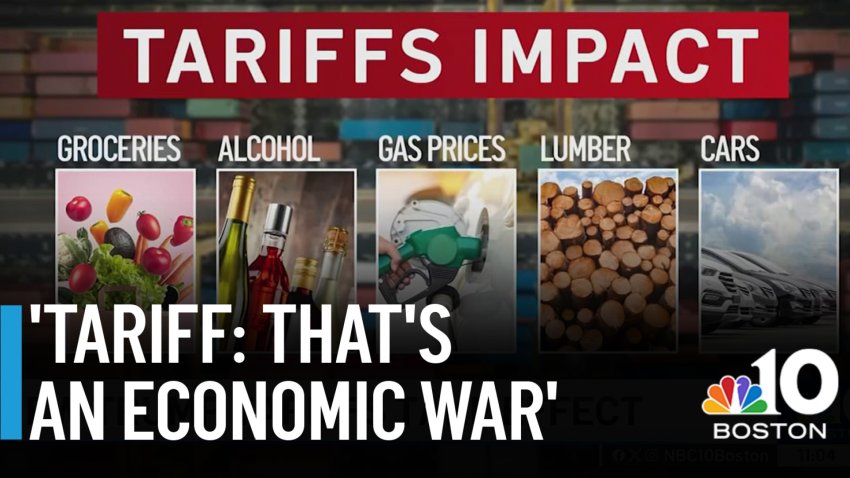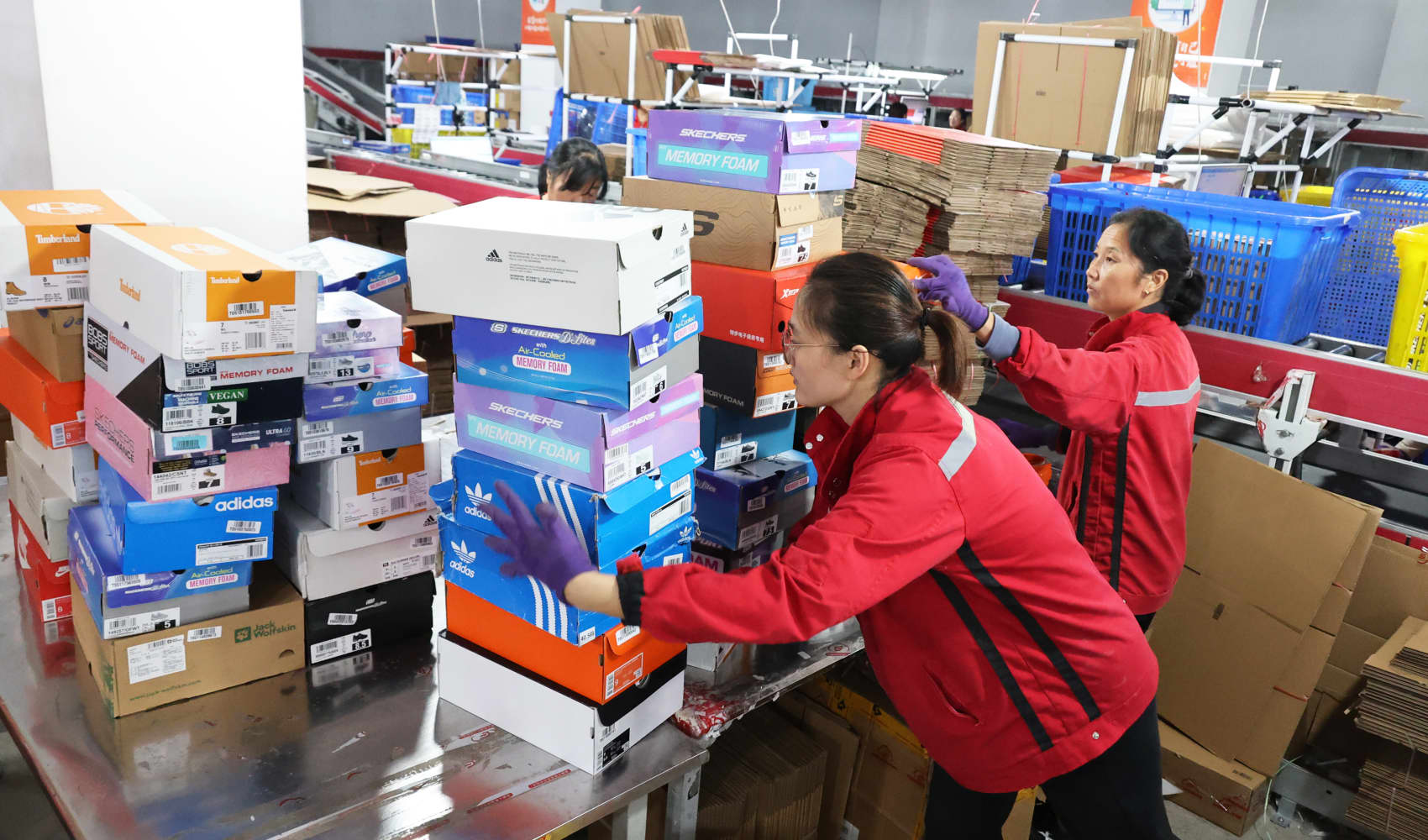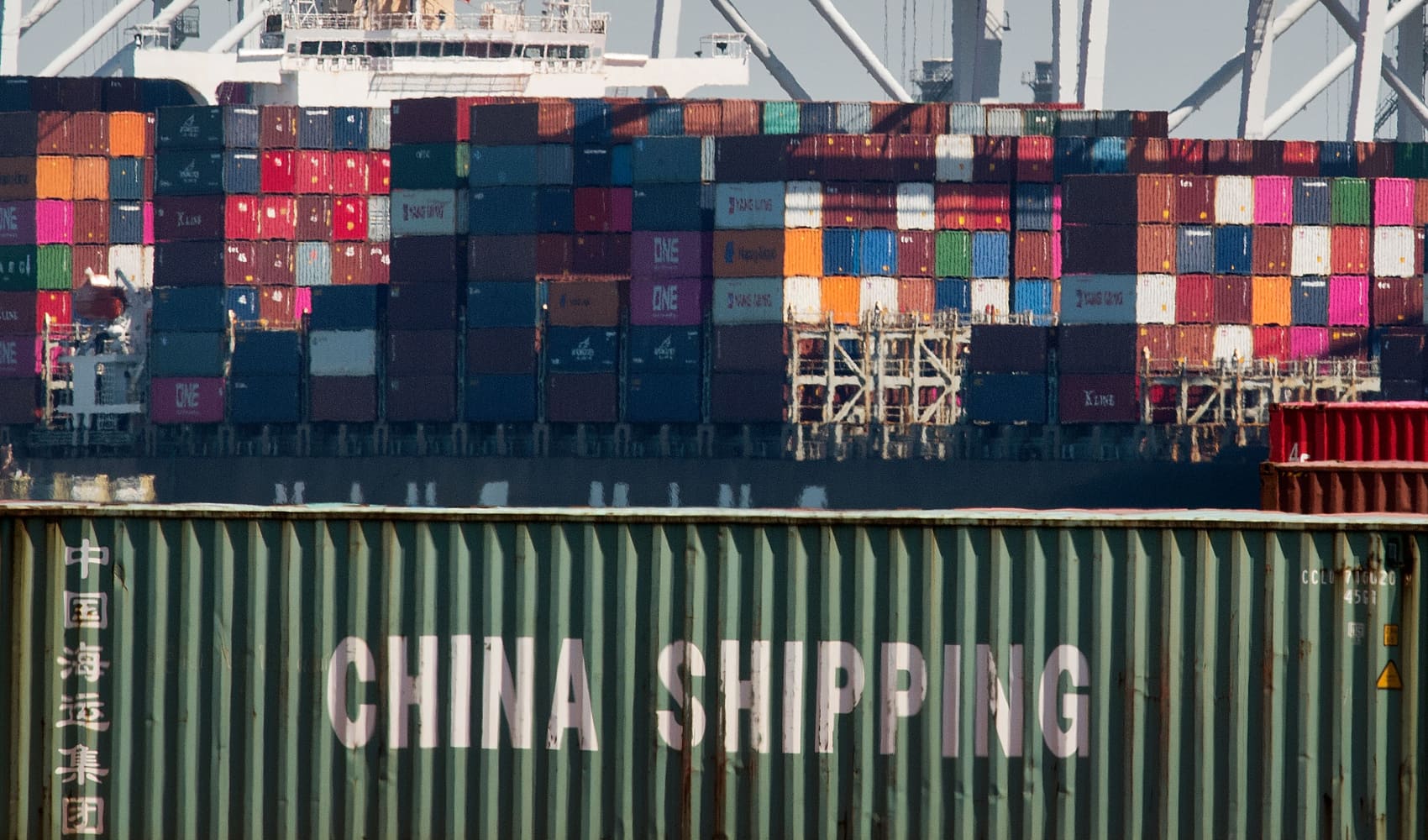If you’ve ordered something online from overseas, you might have benefited from a trade rule that lets small packages into the U.S. free of any taxes or fees. But a brief pause in that loophole, the de minimis exemption, gave us a look at what could happen if that exemption goes away and how tariffs could shake up the industry.
Follow NBC10 Boston:
https://instagram.com/nbc10boston
https://tiktok.com/@nbc10boston
https://facebook.com/NBC10Boston
https://twitter.com/NBC10Boston
https://bsky.app/profile/nbcboston.com
If you've ordered online from overseas, you might have benefited from a trade rule that lets small packages into the U.S. free of taxes and fees. But a brief pause in this loophole gave us a glimpse of what could happen when that exemption goes away — and a preview of how tariffs could shake up the retail industry.
There's no greater feeling than receiving a package in the mail. But what if that delivery came with an unexpected invoice?
WATCH ANYTIME FOR FREE
Stream NBC10 Boston news for free, 24/7, wherever you are. |
It happened to our consumer producer. Her $94 purchase was slapped with a $52 bill for customs duties weeks after the package arrived. So we had to ask: why?!
Turns out, it arrived in the U.S. when the Trump administration briefly rolled back the "de minimis" exemption, a loophole that allows packages from China under $800 to enter the U.S. without tariffs. The rule was reversed within days — but not fast enough for some.
Get updates on what's happening in Boston to your inbox. Sign up for our News Headlines newsletter.
"I don't think that people should find out about the tariff costs post purchase," said Lauren Beitelspacher, professor of marketing at Babson College.

The de minimis rollback is an example of how tariffs could be passed on to consumers. Some retail businesses rely on direct from manufacturer shipping to keep prices low.
"Ultimately, the companies and people that are going to be hurt the most are the consumers and small businesses," Beitelspacher said.
She explained large retailers facing the threat of tariffs have more buying power and can absorb price changes, but small retailers may not have the resources to do that..
"Somebody's gonna have to pay the tariffs one way or the other, and it's either gonna be with a lower quality product, or it's gonna be, 'We're gonna have to shift production somewhere else,' and so that's gonna disrupt inventory, that's gonna disrupt supply chain, or the customer's just gonna absorb the cost of the tariff," Beitelspacher said.
More on the de minimis exemption
In anticipation of some disruption to their supply chain, Beitelspacher said larger retailers might have ordered additional inventory for the spring, meaning consumers might not feel the impact right away.
While shoppers may not have control of prices, there are ways to save ahead of tariffs.
Some tips include preparing a budget, looking for sales and discounts and buying U.S.-based brands — a small change that can make a big impact on your wallet.
"There is manufacturing currently in the United States, especially for things like apparel," said Beitelspacher. "It is wonderful and they do a great job and I think that this is their opportunity to shine and to really get some economies of scale."




